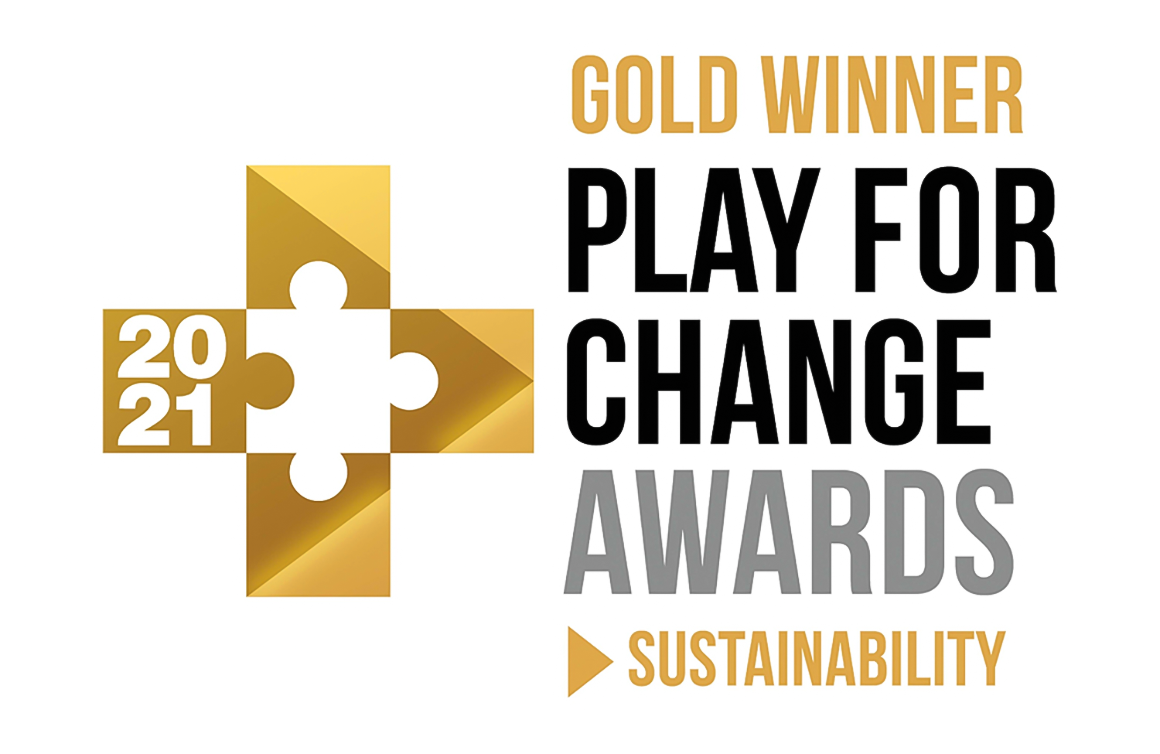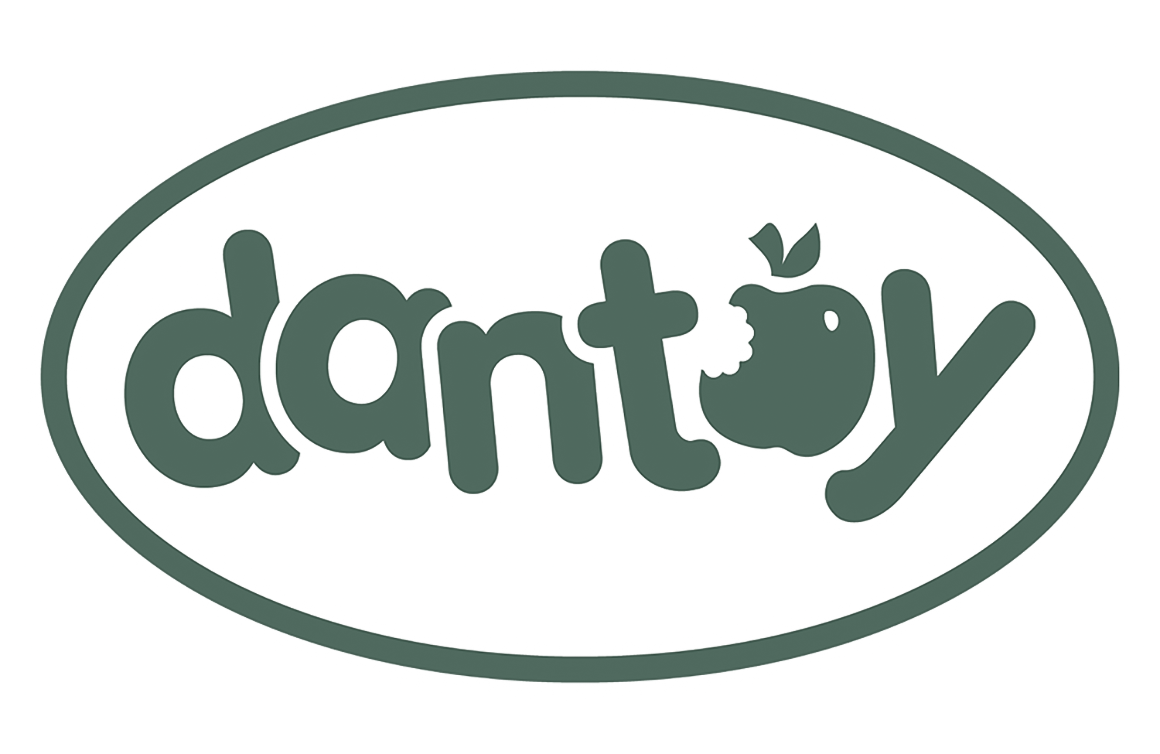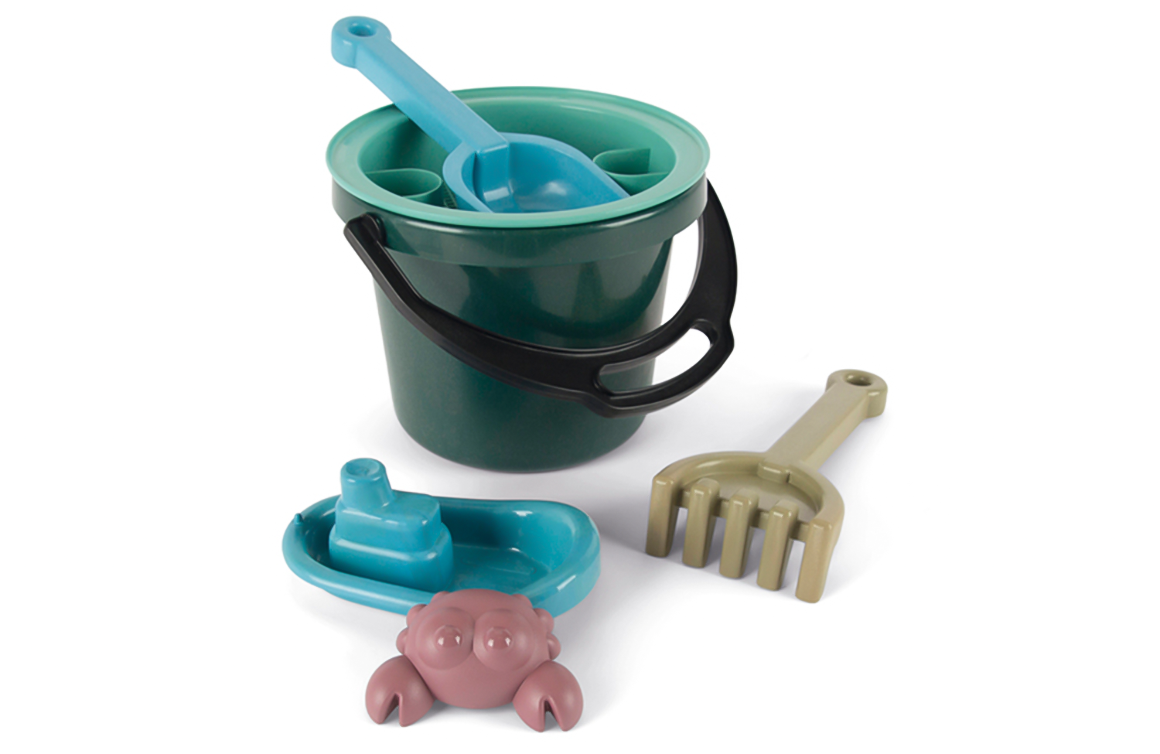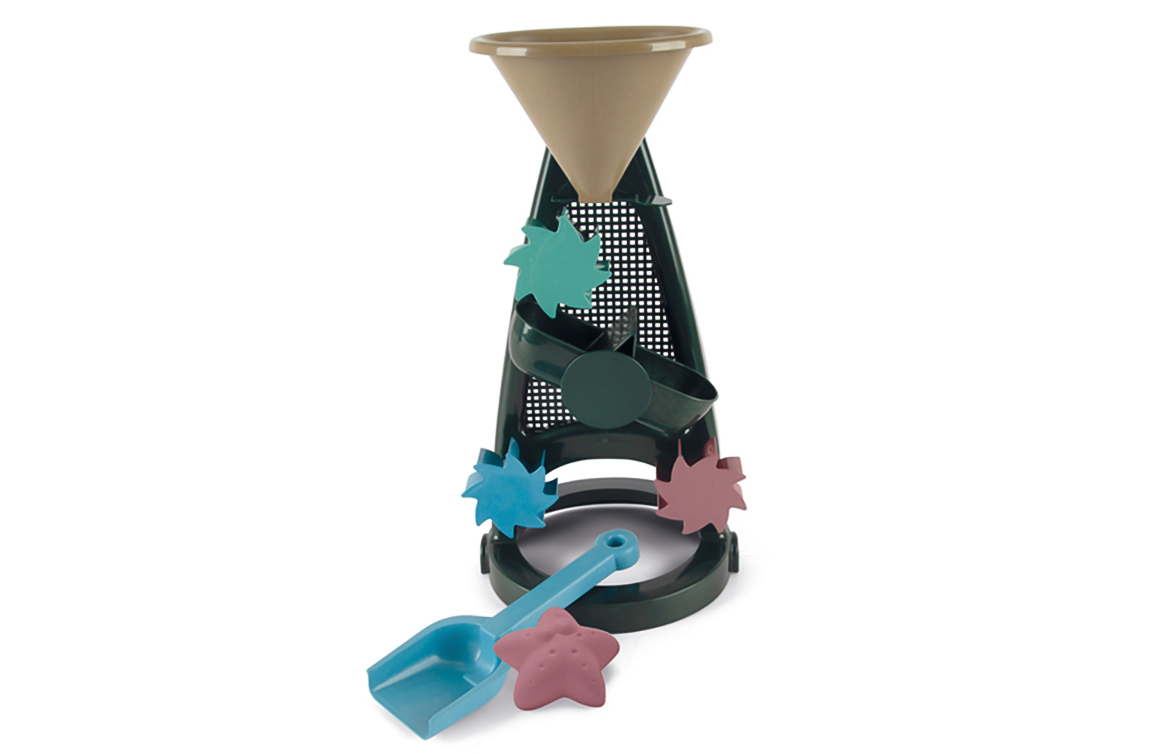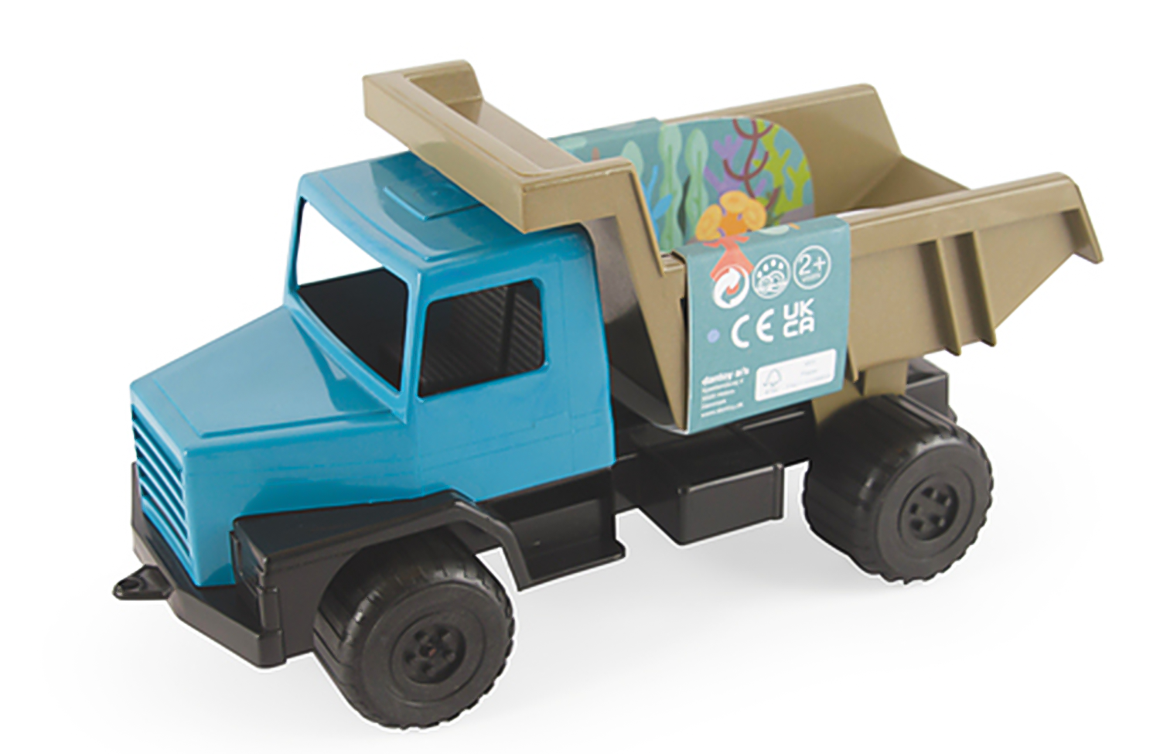Tell us about dantoy and the company’s philosophy of play.
dantoy has been around for quite a while now — we were founded in 1964 in Denmark and we produce everything in Denmark. We are focused on the creation and production of environmentally friendly toys and manufacturing practices.
We have worked with an environmentally conscious agenda for many years. As the market has become more mature, we’ve picked up initiatives to support our agenda. In the last 5 years, we have introduced the BIO line of toys, which uses plastics made from sugarcane. Mattel and all the big players are doing that today, but we were pioneers in the field. BIO earned recognition for being one of Europe’s most sustainable toy innovations in 2020.
In 2021, we launched the Green Bean line of toys. We had been selling our own waste material to other plastics manufacturers for use in pallets. Now, we are taking that material and using it for this new line of toys. We earned a gold medal at the Toy Industries of Europe 2021 Play for Change Awards for this innovation.
We’ve never been the cheapest partner in town — we have other values for our products.

The company has developed a new line of sustainable toys called Blue Marine Toys. How does that fit within the company’s business model?
We’ve been taking steps and hitting milestones in this direction for many years. When we were ISO certified in the early 1990s, we were one of the first toy companies in Europe — and actually in the world — to achieve that. We are licenced for the Nordic Swan Ecolabel. This relationship certifies that our toys are environmentally friendly and non-toxic. We are also one of the only plastic toy manufacturers to have a clean sweep operation, meaning our entire factory floor, which covers 16,000 square meters, is covered with a special drainage system to ensure no microplastics get out into the community.
We have made a huge investment in our facilities and machinery. The big issue is how to convert virgin fossil oil-based material into bio-plastic alternatives and recycled alternatives. We’ve been very committed to this agenda since 2016. Fairly quickly, we also found out that these alternatives are very limited compared to virgin materials. Instead of changing our processes for one special item, we are looking into a future where we will have a lot of different categories with different materials to achieve our mission to become 100% free from virgin materials. Our BIO, Green Bean, and Blue Marine Toys lines are all steps toward this goal. It could be a post-consumer waste line in the future — a step completely away from using virgin materials in the production of our toys.

What are some of the challenges you face when developing sustainable toys?
It’s not just about being able to recycle our plastics — we’ve been doing that for 30 years. We really want to be 100% free from fossil oils and virgin materials in our toys. Perhaps this will happen in the next 8 years, let’s see. It is a challenge because when to use virgin materials, you create a recipe for exactly what you want — the look and feel of the toy.
In working with alternatives, we have to accept that the plastics being used had another life before getting to us. That can come with difficulties, especially when we’re talking about the food-safe products in our roleplay toys. The toys need to look authentic and they need to be safe for children to eat and drink from. We have had to limit the assortment in the line so it continues to meet safety standards while also being produced from recycled materials.
The testing certification is different when working with raw materials in the supply chain. Being a brand owner in this new universe, dantoy needs to take different quality measures than we would if we were using raw materials. When we source the materials for our Blue Marine Toys line, our supplier takes a sample of each bag — not just one bag but each bag — to be sent for testing, where it’s analyzed for over 200 chemicals. Only when it’s been approved will we use it in production. That is something we have added to our process. You never know the true story of what a recycled material has been in contact with. Our testing process is a safety net.
That’s a challenge most brands don’t face when using virgin materials because the testing is all done by the materials manufacturer. We had to come up with a solution of our own. We work closely with our materials partners because it’s a lot of work for them to do this kind of job.

What’s your advice for other toy companies who are considering a more sustainable approach to business?
Just get started.
In 2016, we set a deadline for ourselves to move away from virgin materials within 5 years. We started out quickly but soon learned that it wouldn’t be possible to hit that milestone. But, it was an important step and it’s important to keep going even when things get hard. That’s the only way we can make the industry more sustainable.
Nothing can be changed overnight. Start and keep going even when it’s tough — because it will get tough.

Where can consumers purchase dantoy products?
Our business is split between early childhood educational institutions and retail. Kindergartens and daycares in over 50 countries use our products because they know we have such a good quality product.
In terms of retail, some of our distributors sell on marketplaces such as Amazon. We also have relationships with smaller toy shops. Availability really depends on the market region.

Learn more about dantoy at dantoy.dk.


